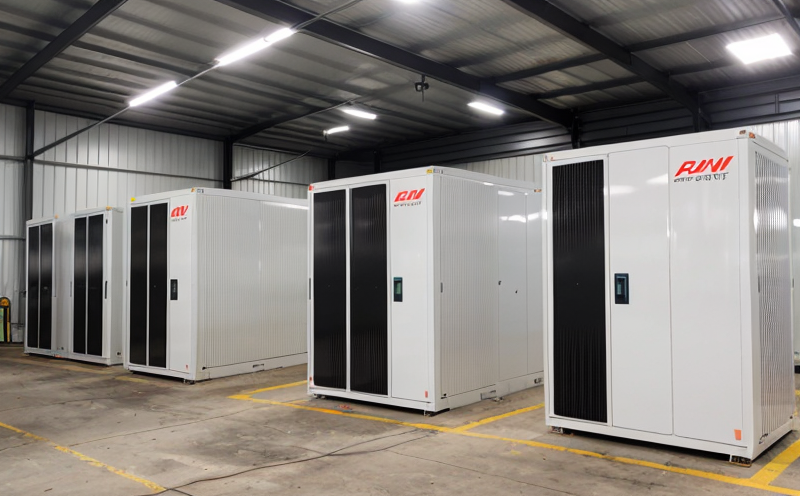IEC 62984 Safety Testing of Sodium-Sulfur Batteries
The International Electrotechnical Commission (IEC) Standard IEC 62984 provides a comprehensive framework for the safety testing of sodium-sulfur batteries, which are critical components in energy storage systems. These batteries operate at high temperatures and use highly reactive materials, making them susceptible to thermal runaway if not properly designed or tested.
The standard specifies detailed test procedures aimed at ensuring that these batteries meet stringent safety requirements before they can be used commercially. Compliance with IEC 62984 is mandatory for any manufacturer looking to ensure product safety and market compliance in the energy storage sector.
Our laboratory offers comprehensive testing services according to this standard, enabling clients to validate their battery designs against rigorous international standards. This includes a range of tests designed to simulate real-world conditions that may lead to failure or malfunction, thereby providing assurance of safe operation under all expected circumstances.
The testing process involves several key stages, starting with initial specimen preparation and calibration of the test setup. Once prepared, batteries undergo various thermal cycling tests, overcharge, short circuit, impact resistance, and other specific procedures outlined in IEC 62984. Each step is crucial in identifying potential weaknesses or hazards associated with sodium-sulfur battery design.
Our team uses state-of-the-art equipment to conduct these tests accurately and consistently, ensuring results that are reliable and repeatable. After completion of each test, our experts analyze data meticulously to determine whether the tested specimens comply with all specified criteria laid out in IEC 62984.
This service not only helps manufacturers meet regulatory requirements but also enhances overall product quality by uncovering issues early in the development process. By adhering strictly to this standard and offering thorough testing services, we contribute significantly towards promoting safer energy storage solutions worldwide.
Our commitment to precision and accuracy ensures that every test conducted meets the highest standards of integrity and reliability. With our expertise and advanced facilities, we provide unmatched quality assurance for sodium-sulfur batteries across various applications.
Benefits
Ensures adherence to international safety standards, enhancing product reliability.
Identifies potential risks early in the development cycle, preventing costly redesigns later on.
Aids manufacturers in meeting regulatory requirements efficiently and cost-effectively.
Promotes safer energy storage solutions through rigorous testing procedures.
Builds consumer confidence by demonstrating a commitment to quality and safety.
Industry Applications
The IEC 62984 safety testing of sodium-sulfur batteries finds application in various sectors where reliable energy storage is crucial. These include utilities, renewable energy providers, electric vehicle manufacturers, and grid operators. By ensuring that these batteries meet the stringent requirements set forth by this standard, we support industries in delivering safe, efficient, and sustainable power solutions.
Use Cases and Application Examples
In practice, sodium-sulfur batteries are utilized in large-scale stationary applications such as utility-scale energy storage systems. They also find use in electric vehicle charging stations to enhance grid stability during peak demand periods. In these roles, IEC 62984 compliance testing is essential to guarantee that the batteries operate safely and efficiently.





